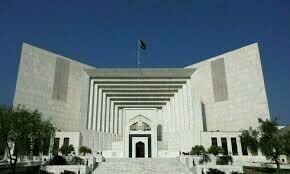KRASNODAR (Russia): Thousands of Muslims from a small ethnic group known as the Meskhetian Turks are fleeing this Black Sea region for the United States. The exodus is caused by what human rights groups call a campaign of persecution sanctioned by local authorities and spearheaded by the Cossacks, a Russian militia that fought for the czars and is being revived.
In the past year, just more than 5,000 Meskhetian Turks have resettled in the United States as refugees, and 4,400 have approval to immigrate, according to the US Embassy in Moscow. Another 7,000 have filed applications that US officials are reviewing.
“I call it soft ethnic cleansing,” said Alexander Ossipov, an analyst at the Institute for Humanities and Political Studies in Moscow. “The local authorities decided which ethnic groups were desirable and which were not. It’s government based on a racist ideology.”
The United States has criticized actions of the Krasnodar authorities in State Department human rights reports and at meetings of the 55-country Organization for Security and Cooperation in Europe. Russian officials in the south say the Meskhetian Turks are foreigners who have no right to remain in Russia. They play down reports of Cossack violence.
In interviews, leaders of the Meskhetian community expressed dismay that the Russian government has not curbed the actions of the local authorities and has said it intends to formalize the role of the Cossacks as an auxiliary force in law enforcement nationwide.
President Vladimir Putin has proposed a law that would allow Cossacks to serve in special units in the military, assist the police and work in border control, counterterrorism and counter-drug operations. Political analysts predict the legislation will pass in the next few months.
“There is a long-felt need to confer a legal status on the activity of Cossack units,” Putin said in May at a meeting with Cossack leaders. “Cossacks serving in Cossack units keep law and order.” The Cossacks’ re-emergence is part of a broader revival of vestiges of the Russian past, both czarist and Soviet, that for many people invoke national greatness and patriotism, a goal of the Kremlin. The trend began under President Boris Yeltsin in the 1990s and has continued under Putin. “How can Putin make police out of people who have no respect for the law?” said Sarvar Tedorov, 57, a community leader who lives in the town of Varenikovskaya, about 80 miles from Krasnodar. “Is he completely blind? They break into our houses, even during prayer. They humiliate us and call us names. The beatings are regular.” Originally from southern Georgia near the border with Turkey, the Meskhetians are a rural, Turkish-speaking people who have often been buffeted by their Russian neighbours.
In November 1944, Joseph Stalin ordered their deportation from Georgia to Uzbekistan, Kazakhstan and Kyrgyzstan in Central Asia for alleged sympathy with the Nazi forces that invaded the Soviet Union. Nearly 90,000 people were uprooted. In June 1989, Soviet authorities ordered the evacuation of the Meskhetian Turks from Uzbekistan after they became the target of ethnic rioting there. About 12,000 moved to Krasnodar; many others went to central Russia. In 1991, Russia passed a law that all former Soviet citizens who lived permanently in Russia when the law came into effect were deemed Russian citizens, as long they didn’t renounce that right within 12 months. In most parts of Russia, Meskhetian Turks became citizens.
In Krasnodar, however, officials balked and denied official residency papers to the Meskhetians, the prerequisite for citizenship applications, said Ossipov, who has written extensively about the plight of the group for Memorial, a Russian human rights group, and the UN refugee agency.
Meskhetians say local officials also have blocked implementation of a more recent law that on paper makes it easier for them to obtain Russian citizenship. The officials say the Meskhetians are citizens of Uzbekistan who spurned their chance to become Russian citizens. “Theirs is not a problem with the Krasnodar region, it’s a problem of their own creation,” said Valery Ostrozhny, deputy head of the Department for Monitoring Migration in the Krasnodar regional government.
In meetings of international organizations, Russian officials have said that the Meskhetian Turks should be repatriated to Georgia, their historic homeland. Memorial and other groups insist that any return to Georgia should be voluntary and should not be used to deny Meskhetians their rights in Russia, including citizenship. Without residency permits, the Meskhetians in Krasnodar became isolated in their towns and villages. According to reports by Memorial, their homes were labelled illegal, they could not legally hold jobs, their marriages were not recognized and the births of their children were not officially recorded, extending the state of limbo into succeeding generations.
“It’s impossible to live here,” said Rustam Zautadze, 35, also from Varenikovskaya, who is moving to Baltimore soon with 17 other family members, including his wife and three children, his parents, his siblings and their children. “Several times, Cossacks and police came to my house and asked for our papers, which of course we don’t have. And then they fine us. If they catch you on the street, they arrest you. I’ve spent several weeks in detention centers.” Local officials said such cases are rare. “Where the local authorities did something wrong,” Ostrozhny said, “the courts ruled against them. But there aren’t many of those cases.” —Dawn/Washington Post News Service













































Dear visitor, the comments section is undergoing an overhaul and will return soon.